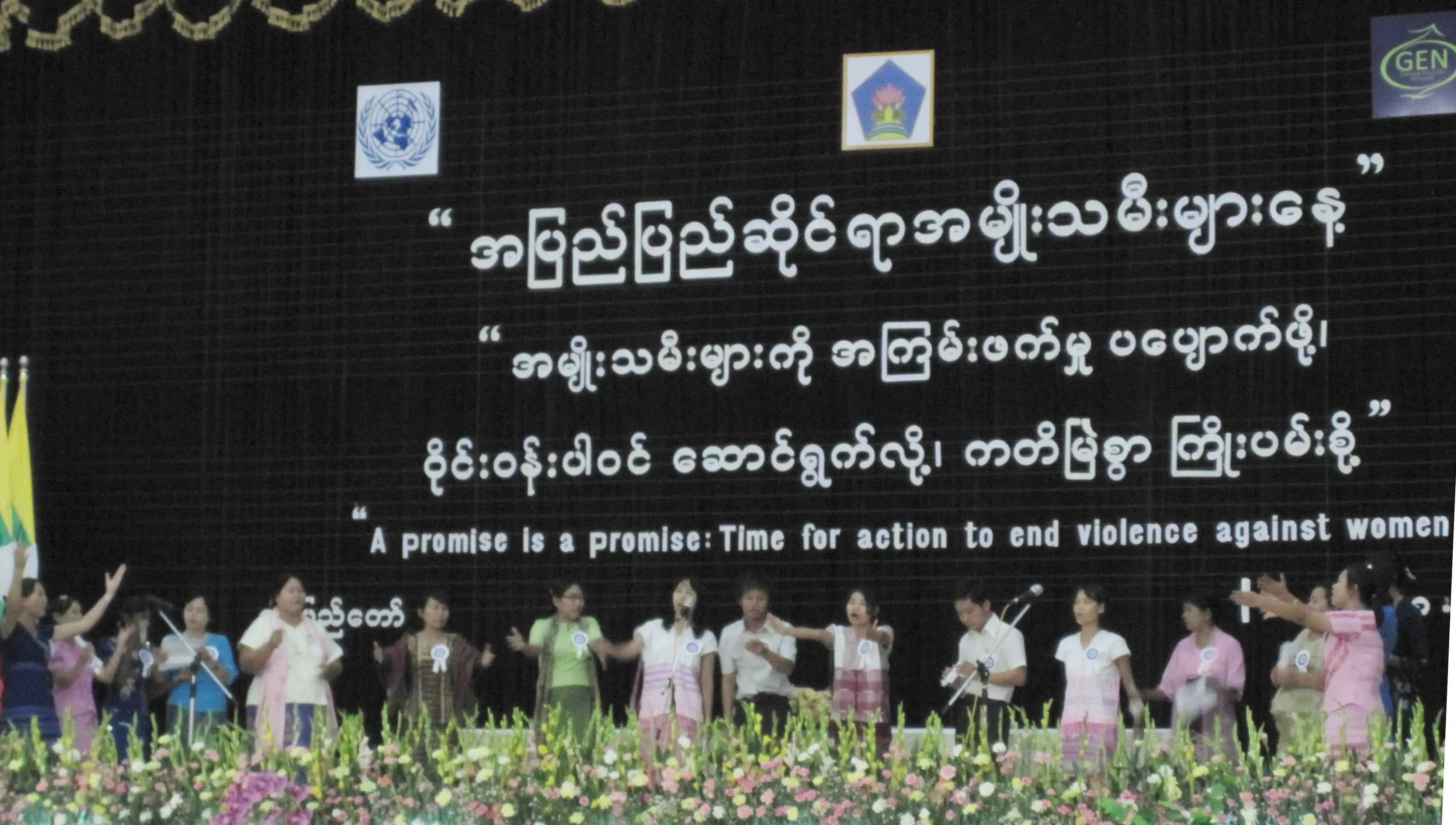Equal access to education, training and technology can enable women to improve the health and well-being of their families, take advantage of income-earning opportunities and protect themselves from exploitation and vulnerability.
This was a key message from the roundtable discussion held today in Yangon on the occasion of the International Women's Day.
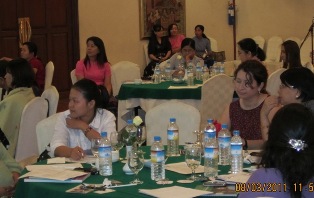
More than 80 people, representing Government, UN agencies, local and international non-government organization and women’s groups, participated in the event, which was organized by the United nations Population Fund (UNFPA), chair of the United Nations Gender Theme Group and Women’s Protection Working Group in Myanmar.
“One hundred years ago, when the world first commemorated International Women’s Day, gender equality and women’s empowerment were largely radical ideas. On this centenary, we celebrate the significant progress that has been achieved through determined advocacy, practical action and enlightened policy making, said the UN Resident/Humanitarian Coordinator, Bishow Parajuli in his opening remark, quoting the UN Secretary-General’s message on the occasion.
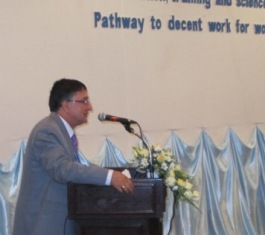
Women in Myanmar in general exercise most of the same basic rights as men, but are still underrepresented in higher positions, including at the political level. Moreover, women do not receive equal pay for equal work. The burden of poverty also falls disproportionately on women.
“We have seen good progress in recent years, and Myanmar has signed and ratified important international treaties and developed a detailed National Plan of Action for the Advancement of Women. It is now important that these policies and good intentions are translated into actions on the ground, and this can only be achieved by a concerted effort by all stakeholders and the active participation of women at all levels,” said Parajuli.
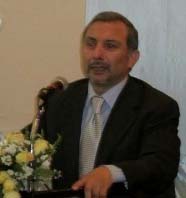
In a presentation on the theme of the day – Equal access to education, training and science and technology – Mr. Mohammed Abdel-Ahad, UNFPA Representative for Myanmar and Chair of the Gender Theme Group, emphasized the need to ensure gender sensitive quality education and training and the transition from education to full employment and decent work for women.
“Creating a knowledge base on gender issues at universities and introducing courses on gender at the post-graduate level could be ways to foster awareness and ensure broader engagement. The media could also play a larger role in advocating for equal access and opportunities for men and women,” said Mr. Mohamed Abdel-Ahad.
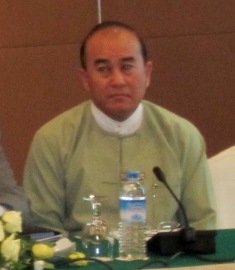
The Deputy Director General of the Department of Social Welfare, U Aung Tun Khaing, pointed out that equal access to education and training also provide added benefits.
“Giving opportunities to women such as the right to education and training helps to prevent women from being trafficked to other countries and becoming vulnerable to abuse,” said U Aung Tun Khaing, who also emphasized the importance of coordination and transparency in the sharing of information and resources to identify vulnerability gaps in multi-sectoral activities.
The Round Table also heard presentions from the United Nations Educational, Scientific and Cultural Organization (UNESCO) on Women and Education, from the non-governmental organization , Association François Xavier Bagnoud (FXB) on Women Friendly Spaces and from Women Organizations Network on livelihood support. A group of women from Cyclone Nargis-affected town of Labutta also shared their personal experiences. The women who are the beneficiaries of “Women Friendly Spaces”, an initiative to promote the empowerment of women in Labutta, highlighted how the knowledge, skills and micro-loan support had helped in rebuilding their lives after the disaster and how they are now able to send their children to school.
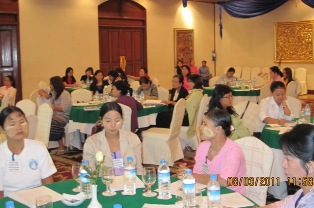
The United Nations in Myanmar is strongly advocating for equal rights and opportunities for all men and women. A key objective is to build national capacity on gender conceptualization, analysis and mainstreaming in policies, plans and programmes.
Through its Gender Theme Group and Women’s Protection Technical Working Group comprised of focal points from all agencies and civil societies, the UN is providing technical support to the government for implementation. of the Convention on the Elimination of All Forms of Discrimination against Women (CEDAW). Gender is also being integrated into programme design and implementation by all UN agencies. Mr. Mohamed Abdel-Ahad called upon all stakeholders to support the Plan of Action for Advancement of Women.
MORE INFORMATION AND INTERVIEWS
UN Gender Theme Group in Myanmar:
Mohamed Abdel-Ahad
UNFPA Representative in Myanmar and Chair of UN Gender Theme Group
Tel: +95 9 5161110, ahad@unfpa.org
UN System in Myanmar:
Esben Q. Harboe
Special Assistant to the UN Resident/Humanitarian Coordinator
Tel: +95 9 507 4853, esben.harboe@undp.org
Aye Win
National Information Officer, UNIC
Tel: +95 9 5123952, aye.win@undp.org
Online resources:
www.internationalwomensday.com
www.unwomen.org



